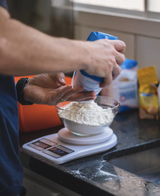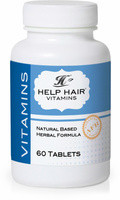
Blog

Fish Collagen for Hair GrowthThere are many types of collagen for hair growth. Not all are equal.Bovine is the most prevalent and the least expensive but in large daily amounts can cause hair loss. Ma...

Can too much Protein cause hair loss? How much is too much in a day.Read more...
Can too much Protein cause hair loss? How much is too much in a day.The amount of protein a person needs in their diet can vary based on several factors, including age, sex, weight, physical acti...

The Ultimate Guide to Understanding and Treating Hair Loss ( Part 1)
The Ultimate Guide to Understanding and Treating Hair Loss
Hair loss is a common issue that affects millions of people worldwide. Whether it's due to genetics, aging, or other factors, it ca...

Ashwagandha- It is touted as a treatment for hair growth but can it cause liver damage?
Ashwagandha- It is touted as a treatment for hair but can it cause liver damage?
Recently several new hair loss companies have been promoting the use
of Ash...

Hair vitamins | why your hair needs vitamins
Unlock the Benefits of Hair Vitamins for Healthy Hair Growth.Hair is a very important part of the body. Even though it does not play any major role in the body metabolism, it does add beauty to the fa...

Hair loss vitamins
Essential Hair Loss VitaminsAs a way to remain healthy all parts of your body need continual nourishing. The hair isn't an exception. Such things as regular hair cleaning and shampooing are not enough...

Does greek yogurt cause hair loss?
Does greek yogurt cause hair loss?
Can Greek Yogurt Promote Hair Growth or Loss?
There are many different types of yogurt on the market. Greek yogurt has become popul...

Collagen - How much is too much in a day? Does too much collagen cause hair loss.
Does too much collagen cause hair loss?
Collagen - how much is too much in a day?
Everyone wants beautiful hair.
There are many collagen products...

Is selenium toxic for hair? Does your hair vitamin have added selenium damaging your hair.
Is Selenium Toxic for Your Hair? Learn the Risks & Benefits &nb...



Is Ashwagandha good for hair growth? It is extremely anabolic. Read more....
Ashwagandha and Hair Growth: What You Need to KnowAshwagandha is touted for many ailments and more..It is claimed to be good for hair.But Is Ashwagandha (Withania somnifera)good for hair growth?Read m...


